Photo essay for the Special Initiative “From Fear to Resilience: Visual Storytelling of COVID-19 in Southeast Asia” by SEA Junction and Partners.
| Title: | Adaptation and Re-invention for Survival among Food Vendors in Chonburi, Thailand |
| Storyteller/Artist: | Jan Daga |
| Place: | Banglamung, Chonburi, Pattaya, Thailand |
| Time: | April-May 2020 |
I am a photographer living in Banglamung, Chonburi, in the surroundings of the tourist venue of Pattaya in Thailand. Last April I initiated to portray the food producers and sellers in my neighbourhood in an effort to show how their lives have been affected by the COVID-19 pandemic. All bars and tourist enterprises are closed, but wet market and street vendors have been allowed to remain open since they provide essential services. Still customers are few since there are no tourists and locals are expected to stay home if not with for some work or urgent reasons. And this only in the day, as there is curfew at night.
Every day I go out of my home on my motorbike with the camera and a recorder and visit with proper social distance measures the stalls in the area. I wanted to document and show to the general public the strength of people in the area, who despite the many difficulties get up in the morning to supply the markets with fresh food and bring food to our tables. The farmers and breeders but also the small traders who find themselves living in a deserted city with few profit margins. I wanted to focus on food, being a primary necessity, but also because food is part of a chain that starts from the bottom and moves many gears in an economic and productive system. I wanted to understand how the farmers were managing the situation, how the fresh markets and the few customers continued to operate in the midst of the crisis.
To initiate the conversation with the sellers, I devised few questions starting from their names and other generalities and proceeding to their work, their experience with the COVID-19 situation, the impact on their work and what they hoped for the future. I approached many sellers, but not all wanted to respond. There is often ‘shame’ in having to show others a difficult situation at the risk of ‘losing face’ and distrust in having to tell a stranger about their difficulties. Those who replied, however, did so with the heart, often with anger or with a desire for revenge against a situation that is causing them great hardship and they still struggle to understand.
From the talks it became clear the importance of the family as an entrepreneurial and support unit to resist adversity even in the most critical situations. Also, a great capacity to adapt and re-invent came out naturally in the conversations. To overcome the sharp reduction in buyers, the sellers add other merchandise –like Suphalerk Lungtong who now sell roasted meat besides vegetables to try to incentivize sales—or add extra hours — like who has to drive longer to sell his fresh fruits and/or reduce prices and supplies. For instance, Nid Sala-ngam (Mae Nid) who after 10 successful years of running her somtum (papaya salad) shop in a prime location, now is confronted with few customers:
“I used to make a lot of money and I had a lot of customer but now the situation is different and I have to change my habits too. Every morning I use to go to the market to stock the ingredients I need, but now I have to reduce the amount of what I buy and I have to reduce the price of my products as well. We have less and less customer every-day. I hope that after Covid, everything will get back to normal and I hope to have all my customers back.”
Others may not have been sellers before, but they have started a small enterprise after losing their job because of COVID as many employers have stopped paying their salaries and many were informally employed and thus without social security or other kind of social protection. In the words of Kanyarat Kaisuetrung (Kea):
“I am unemployed right now because of Covid 19 so I decided to take watermelons every two days from Chonburi and sell it on the street. I hope this is just temporary before I get a new job. I’m here just two weeks, some days I have customers, some days not.”
Similarly Pikut Maneerat (Kung) explains:
“I’m here on the street 15 days now. Normally I work in massage shop but they have to close leaving me unemployed. It is better to do something than stay home and no money”
There is also a shop assistant in the city center who opened a chilli shop in a local market, an employee at a luxury hotel that became a seller of fried rice. Some stores that cannot continue their trade due to the government regulations, try to sell groceries to have some incomes: so it happens that an hairdressing venue now sell melons and massage shops have started selling eggs and gasoline.
This openness to change is not the prerogative of young people only, but it is shared across generations. Often the all family join hands in trying out different adaptation strategies. These may become more complex if the family group has a stable business with rents and accounts to pay. At times, spin-offs can form within families. Some members of the family detach themselves and improvise a new occupation to support the core family business. For instance, by temporarily becoming bellboys or fruit sellers.
The food vendors recognize their discomfort as their incomes are reduced by 60-70 percent if not more and some days only one or two customers come. Some, especially more established and costly businesses, wonder how longer they can survive. For instance, Pranee (Nee) who has a grocery store in the biggest fresh Market in Pattaya worries:
“This is family business, we open 3 years ago. We used to have a lot of customer but nowour regular customers are gone and we have just some occasional customer. This place is not cheap, we pay 36.000 thb (1200 euros) month and we have to pay the staff as well. How we are going to survive if this Covid situation is not going to move forward?”.
Few sellers get carried away by despair and some do not make it or choose to close for the time being, such as my favorite noodle shop run by an elderly couple who decided to return to their village during COVID-19 lock-down. The majority, however, stays, some forcibly not to increase the debt they have accumulated like Channada Chaikitanankut (Sa): ” I have debt more than 40K (about USD 1,250) because of Covid and less customer every-day. But I have to keep open my shop as it is the only I make money”. The vendors try to accept the situation as they do not know who to blame. Trying is better than doing nothing at home. As Jira Tanakut (Kai) explains:
“I use to work in a hotel in the city but now everything close. I lose my job but I don’t want to die at home doing nothing. Me and my wife we are going to try to sell sticky rice on the street. But apparently it’s not that good anyway better that stay home waiting for the end.”
Everyone is eager to go back to the ‘normal’ although they are aware that it may take longer than they wish and that it may not be the same as before. In the meantime they react, resist and help each other. Misalor Klaykrueng (Misalor), for instance, in spite of the difficulties as her customers from hotels and restaurants near-by are gone, discount the rice she sells to help people who do not have incomes. To them all, I dedicate this visual story in the hope that the reader will be moved to buy from the small shops near his/her house to support them. The big chains will always be there tomorrow, Big C or Tesco are probably making money from this crisis. But the small chicken farmer or the small vegetable seller may not be able to overcome the storm. Together we can help: Be Local.
Photographer/Storyteller
Jan Daga (full name Janusz Daga) is an Italian photographer and free-lance journalist based in Thailand. After graduating in communication and attaining a master degree in photography he has worked with national and international agencies and companies on communication, marketing and visual design in Austria, China, Korea, Germany, Holland and Italy. Nowadays, his work in Thailand is focused on vulnerable people’s life, working conditions and daily struggles and the contradictions of modern society in Asia (see http://www.jandaga.com).
Organizers
From Fear to Resilience: Visual Storytelling of COVID-19 in Southeast Asia is a special initiative of SEA Junction and its partners Beyond Food, GAATW and Bangkok Tribune to provide an alternative visual narrative of the pandemic in the region. We believe in the importance of reducing fear and promote informed policy and public discussion to show that COVID19 is also a tale of survival, resilience and solidarity. We are asking for short stories in the form of photo essays, short documentaries and illustrated art essays in any language of Southeast Asia (to be later translated into English) or in English.
See further: http://seajunction.org/special-initiatives/
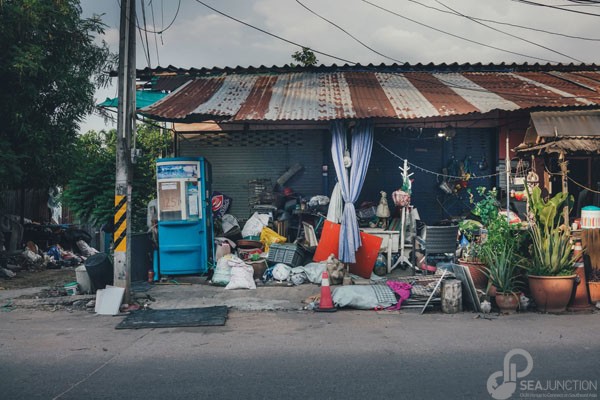
Closed shops (Photo by Jan Daga)
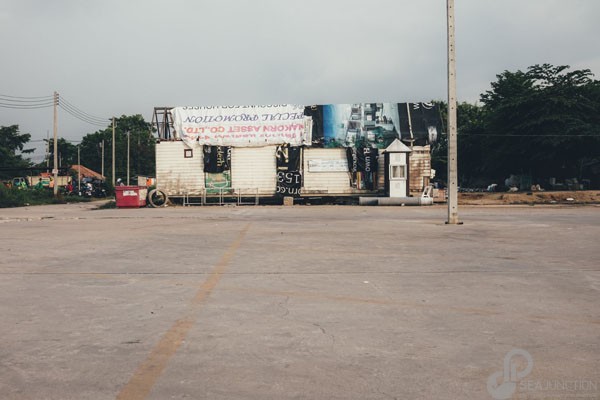
Part of the market is shut down and empty (Photo by Jan Daga)
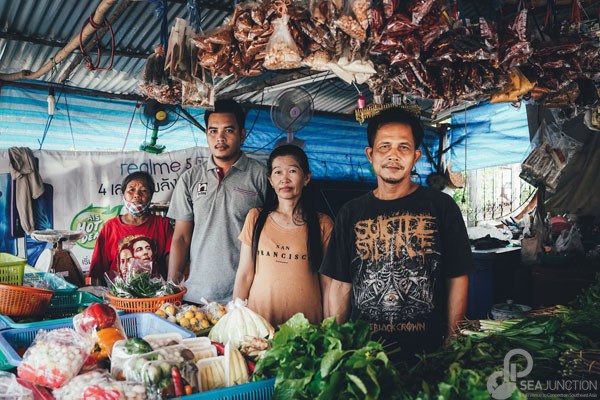
The small family business of Suphalerk Lungtong (Kanoon) also try to sell roasted meat to increase the income. (Photo Jan Daga)
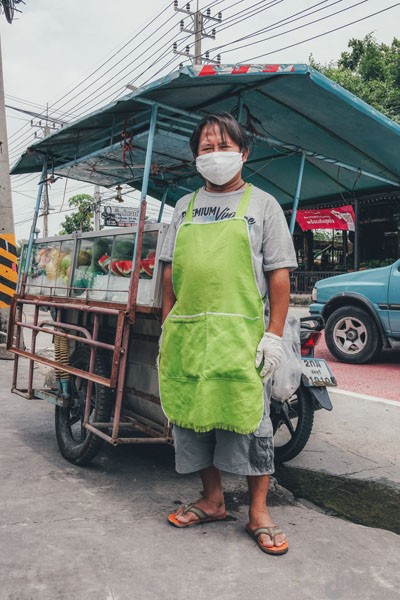
Amon Na-Anthai (Mon) has to drive and work 4-5 more hours every day to sell all of his fruits, otherwise the day after they will be rot. (Photo by Jan Daga)
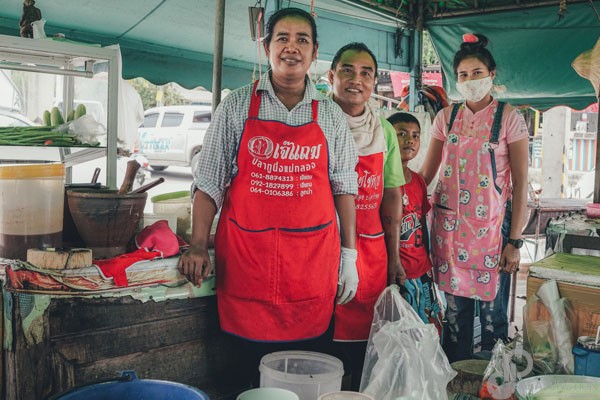
Nid Sala-ngam (Mae Nid) in her somtum (papaya salad) shop that has been running for 10 years successfully, but now has only few costumers. (Photo by Jan Daga)
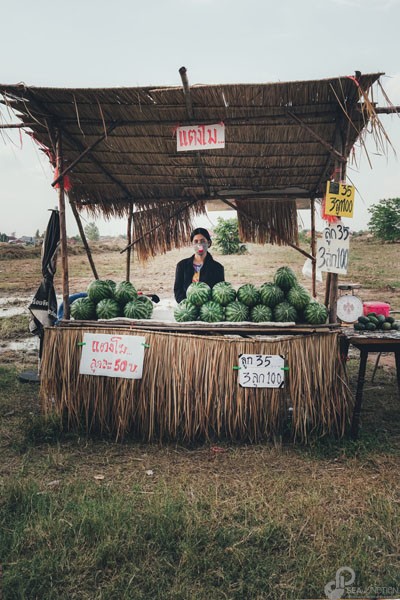
Now unemployed Kanyarat Kaisuetrung (Kea) selling water mellons to have some incomes. (Photo Jan Daga)
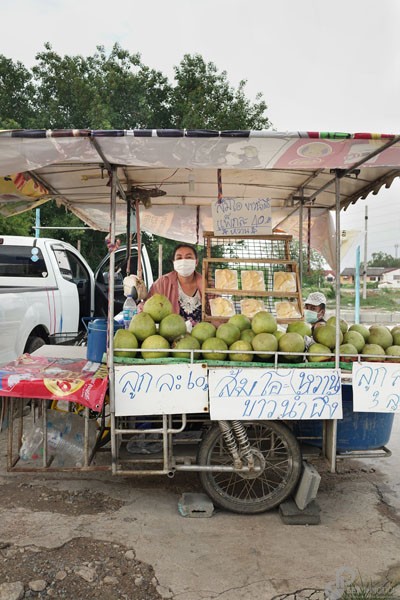
Pikut Maneerat (Kung) from masseur to street seller (Photo Jan Daga)
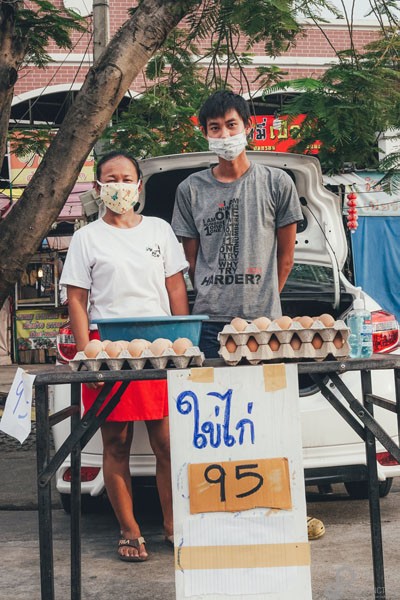
Now-unemployed Sukanya Nupradith (Looknam) decided to sell eggs with her son while the grand-daughter waits in the car. (Photo by Jan Daga)
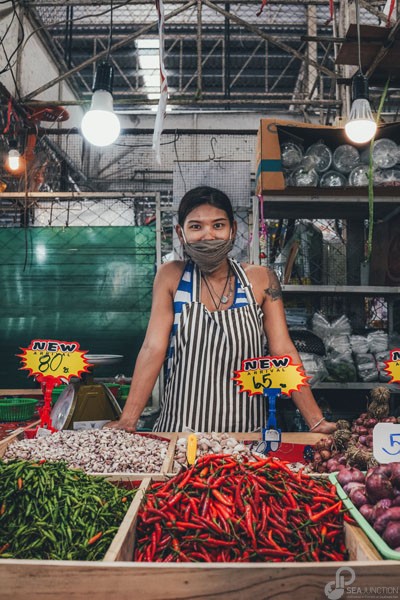
“I open this shop to survive”: Kantika Auprasi (Ple) from seller in the mall to chilli vendor in the market (Photo Jan Daga)
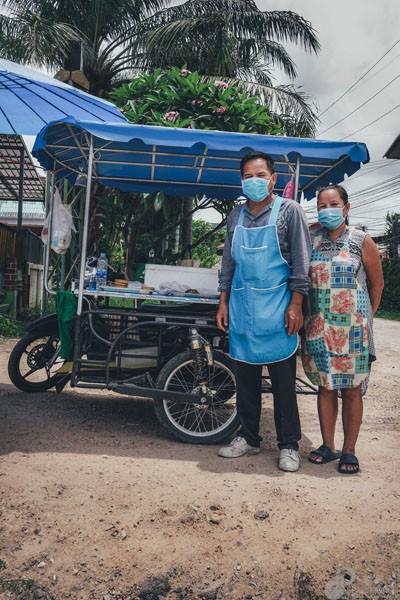
Jira Tanakut (Kai) from hotel employee to sticky rice vendor jointly with his wife “I loose my job but I don’t want to die at home doing nothing”. (Photo by Jan Daga)
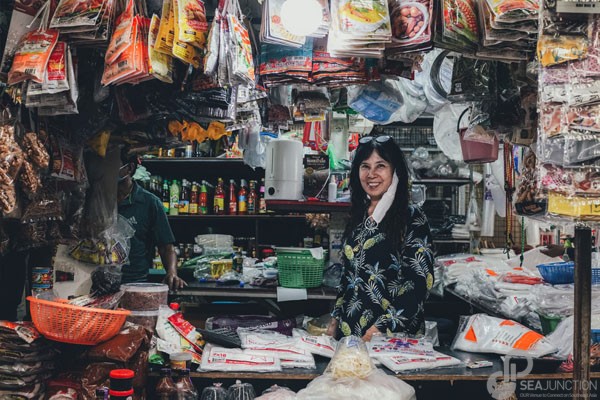
Pranee (Nee) smiles while wondering for how long she can keep her grocery store in the biggest fresh Market in Pattaya going. (Photo Jan Daga)
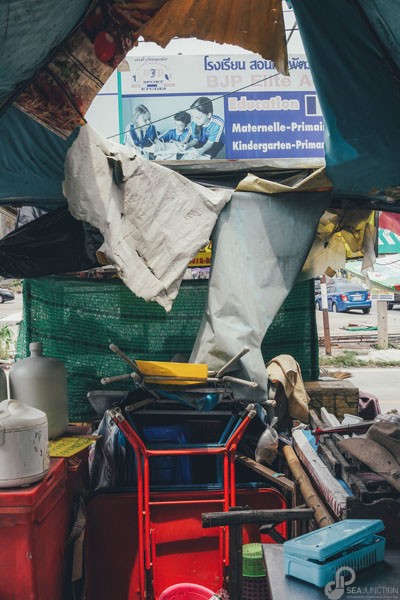
My favourite noodle shop is no more. (Photo Jan Daga)
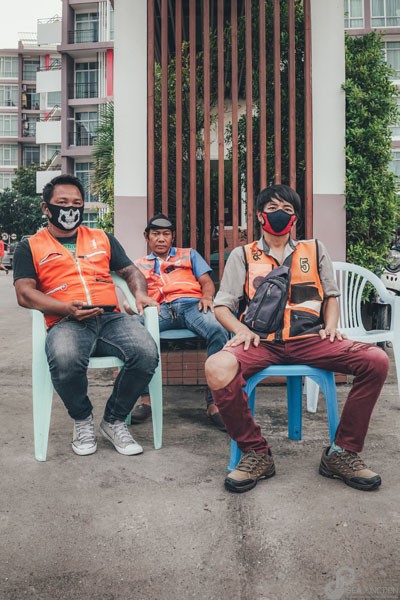
With the entertainment places down and no tourists no much to do for the motor-taxi drivers. (Photo by Jan Daga)
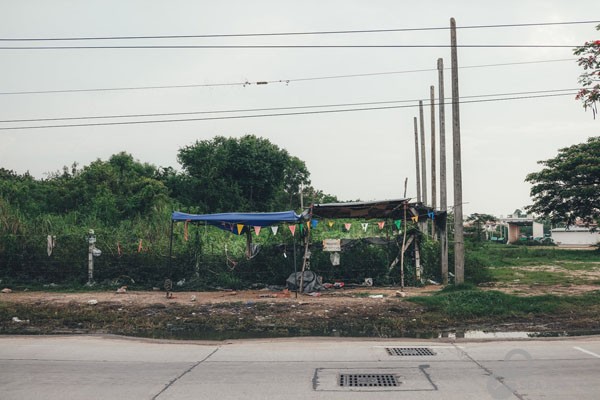
Empty stalls up for rent. (Photo by Jan Daga)
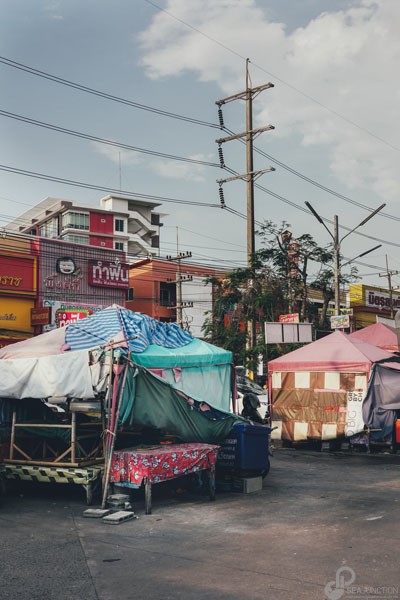
Empty stalls. (Photo by Jan Daga)
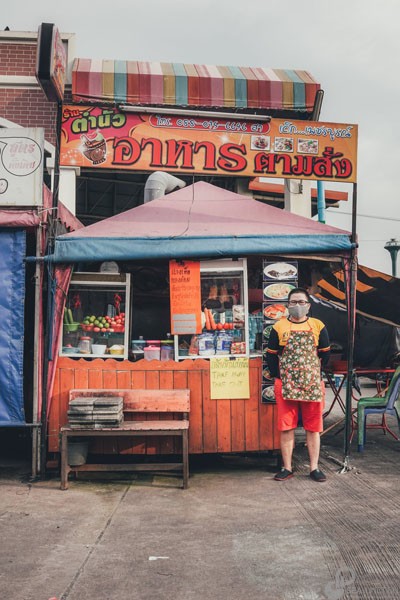
Chinnada Chaikitanankut (Sa) with her papaya salad stall that she has to keep open not to accumulate further debt. (Photo by Jan Daga)
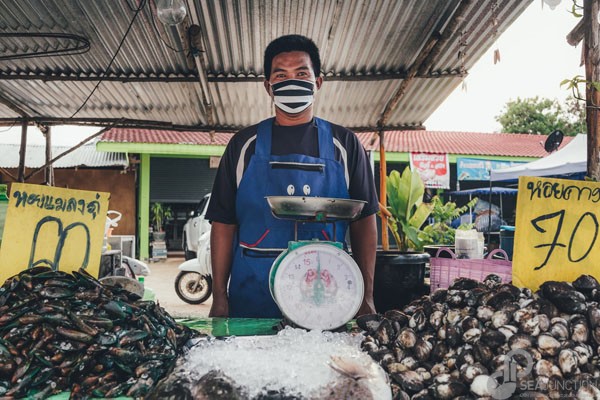
Pitak Siriwong (Down) in his seafood shop: “what can we do we open and hope our customers come back”. (Photo by Jan Daga)
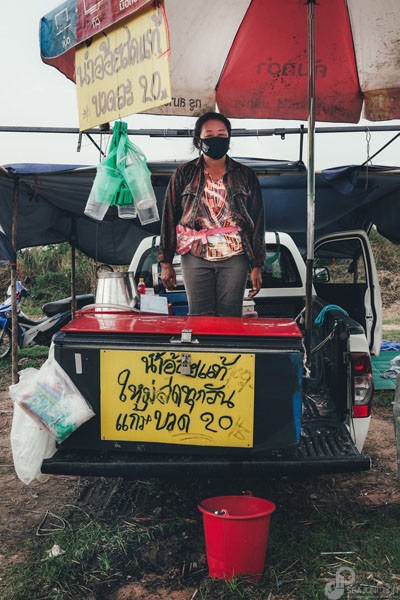
Varinda Ruengtong (Noi) selling sugarcane juice on her pick-up car (Photo by Jan Daga)
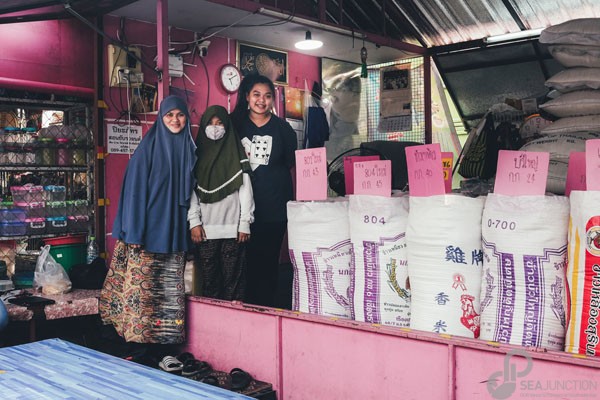
Misalor Klaykrueng (Misalor) in her rice shop with her daughters (Photo by Jan Daga)


